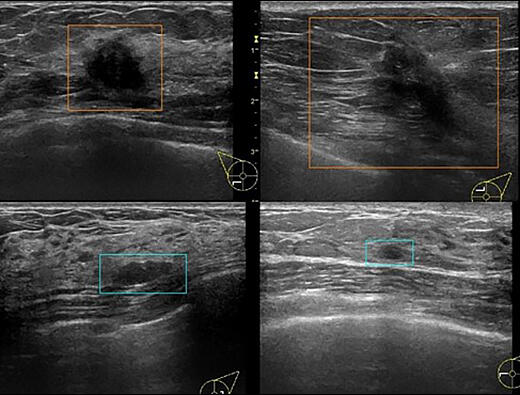A multi-institutional joint research group has developed an image diagnosis system using artificial intelligence (AI) powered by deep learning technology. The group was led by Senior Assistant Professor Tetsu Hayashida and Professor Yuko Kitagawa of the School of Medicine, Keio University, together with Fixstars Corporation. Through this research, it is possible to determine with a high degree of accuracy whether a patient undergoing a breast cancer screening (breast ultrasound) should undergo a detailed examination. The results of this study were published in the online edition of Cancer Science.
The AI was created using deep-learning Convolutional Neural Network (CNN) technology. It was developed to make a diagnosis based on the BI-RADS criteria, an international standard for breast ultrasound imaging, and to determine whether the target ultrasound image contains a lesion that requires closer examination.
Using this AI, the research group performed examinations on 3,166 breast ultrasound images (including 3,656 lesions) that were not part of the AI's training data and found that diagnosis was possible with an accuracy of 91.2% in terms of sensitivity and 90.7% in terms of specificity. These results show accuracy much higher than the criteria used for physicians certified by The Japan Central Organization on Quality Assurance of Breast Cancer Screening, which is 80% in terms of both sensitivity and specificity.

Image provided by Keio University
Furthermore, when the group compared the results of breast ultrasound diagnoses done by the AI with those of 20 physicians, including 10 surgeons, they found the AI to have diagnosed the ultrasounds with statistically significant accuracy.
In the future, it is expected that this AI system will be used as a diagnostic aid for physicians in breast ultrasounds for breast cancer screenings and physical examinations, which could help prevent overdiagnosis or failure to detect cancer. It may also correct disparities in medical technology by improving accuracy and eliminating discrepancies among facilities.
This article has been translated by JST with permission from The Science News Ltd.(https://sci-news.co.jp/). Unauthorized reproduction of the article and photographs is prohibited.




